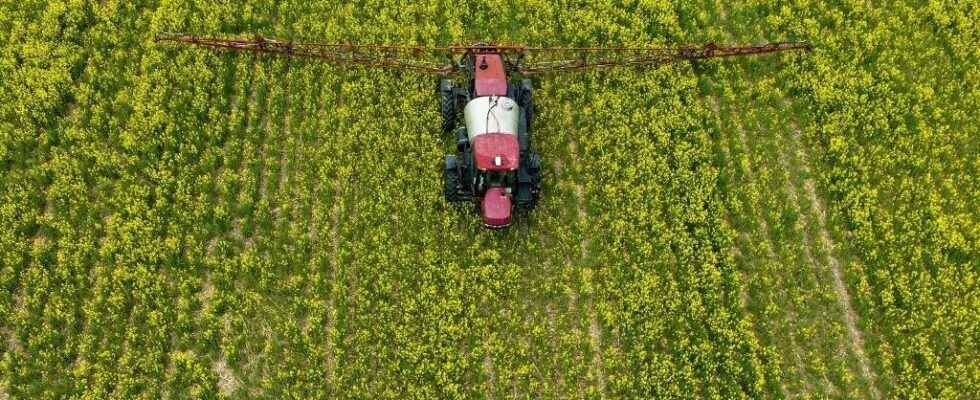The investigation by two NGOs published on Wednesday November 30 reveals that France approved, between January and September 2022, the export abroad of nearly 7,500 tonnes of pesticides, which are nevertheless prohibited on French territory. These exports are supposed to be prohibited, but NGOs denounce many flaws in the text of the law.
” France continues to massively export dangerous pesticides which it no longer wants in its fields », denounces a report signed by the Swiss NGO Public Eye and Unearthed, a publication of Greenpeace. Published on Wednesday, this survey shows that the French authorities approved “ 155 export requests for pesticides banned in France and throughout the European Union », i.e. 7,475 tonnes of phytosanitary products.
NGOs explain how exporters circumvent the Egalim law which prohibits the export of products containing certain substances, without applying to the substances themselves. Since 1er January 2022, ” eIn principle, we can no longer export banned pesticides from France. But we realized that there are gaping loopholes in the lawexplains Laurent Gaberell, of the Swiss NGO Public Eye. The first of these loopholes is that if manufacturers can effectively no longer export products containing banned substances, they can continue to export the substances themselves in pure form. Then they prepare the products ready for use in the destination country. »
Picoxystrobin, a fungicide dangerous for the environment
Among the products exported are notably bee-killing insecticides but above all fungicides, which target fungi and cause risks of genetic mutations. The report points in this respect to the export of picoxystrobin, banned in 2017 ” due to high risk to aquatic organisms and genotoxic potential, i.e. capacity for irreversible damage to genomes “, explains Laurent Gaberell. According to the NGOs, it represents almost 40% of the volume » exported between January and September 2022. Brazil is the main destination, as it is widely used in the cultivation of soybeans.
We realized that there are gaping loopholes in the law.
Interview with Laurent Gaberell, from the NGO Public Eye
The survey conducted by Public Eye and Greenpeace Unearthed also points out that products containing substances ” whose authorization on European soil has expired, and which have not been the subject of a formal prohibition decision by the European authorities can still be exported pending a joint text from the Ministers of Agriculture and the Environment. Nowadays, ” no order of this type has yet been issued “. NGOs nevertheless note a considerable decrease in exports of banned pesticides from France this year, compared to the 28,479 tonnes of products exported in 2021.
(with AFP)
► To read also: The EU bans “bee killer” insecticides but exports them massively
